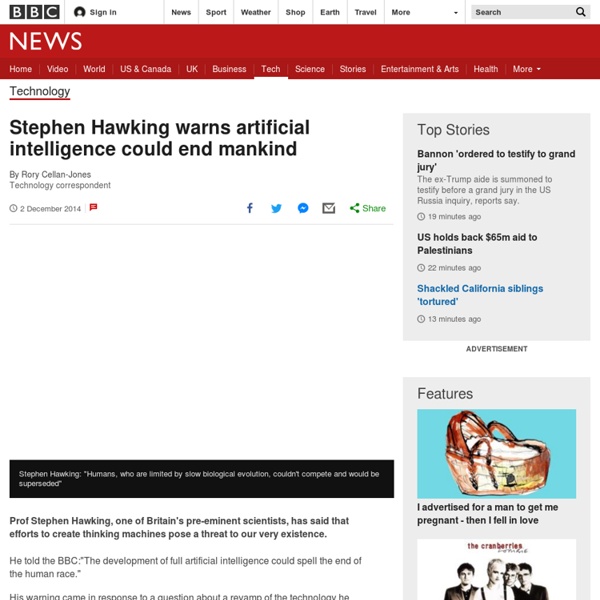BBC Article by Cellan-Jones 2014 on Stephen Hawking

"Moving from Education 1.0 Through Education 2.0 Towards Education 3.0" by Jackie Gerstein
Abstract This article compares the developments of the Internet and the Web with those of education. The web influences people's way of thinking, doing and being, and people influence the development and content of the web. The evolution of the web from Web 1.0 to Web 2.0 and now to Web 3.0 can be used as a metaphor of how education should also be evolving, as a movement from Education 1.0 towards that of Education 3.0. Copyright Statement This document was originally published by CreateSpace Independent Publishing Platform in L.M. Publication Information Gerstein, Jackie. (2014).
Information Search Process | Carol Kuhlthau
“Longitudinal Evidence of the Influence of the ISP on Information Workers.”, 2018. Read the full paper here. PowerPoint presentation of the Information Search Process The model of the Information Search Process (ISP) is one of the most highly cited works in Library and Information Science as noted in the following citation studies: Timelines of Creativity: A Study of Intellectual Innovators in Information Science. Cronin and Meho. Analysis of a Decade in Library Literature: 1994-2004. Using the h-Index to Rank Influential Information Scientists. The Origins and Contextual use of Theory in Human Information Behavior Research. The Use of Theory in Information Science Research. Scholarly Productivity of U. Abstract The Information Search Process (ISP) is a six stage model of the users’ holistic experience in the process of information seeking. In the second stage, selection, the task is to identify and select the general topic to be investigated and the approach to be pursued. 2. 3. 4. 5.
Jan05_01
Editor’s Note: This is a milestone article that deserves careful study. Connectivism should not be con fused with constructivism. George Siemens advances a theory of learning that is consistent with the needs of the twenty first century. George Siemens Introduction Behaviorism, cognitivism, and constructivism are the three broad learning theories most often utilized in the creation of instructional environments. Learners as little as forty years ago would complete the required schooling and enter a career that would often last a lifetime. “One of the most persuasive factors is the shrinking half-life of knowledge. Some significant trends in learning: Many learners will move into a variety of different, possibly unrelated fields over the course of their lifetime. Background Driscoll (2000) defines learning as “a persisting change in human performance or performance potential…[which] must come about as a result of the learner’s experience and interaction with the world” (p.11). Connectivism
Related:




With the development of Web 3.0 into the web that learns with us, I was interested in whether the advancements of the web could be linked to artificial intelligence (AI). I discussed the Web 3.0 and semantic searching with a colleague at school, and we progressed onto talking about the AI and how Steven Hawkings had warned against AI. I found this article and documentary posted at the BBC website and thought it would be interesting to share. by mrsjcc Aug 24